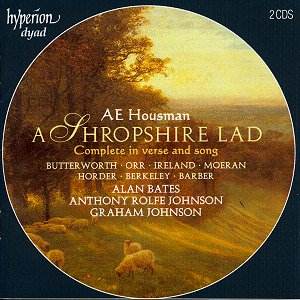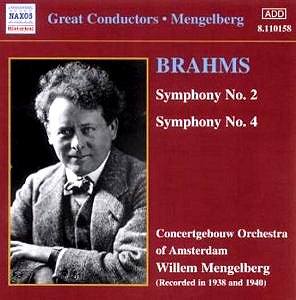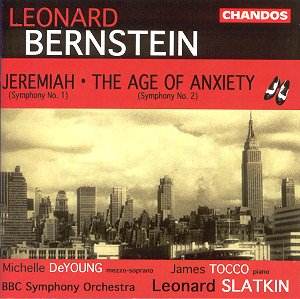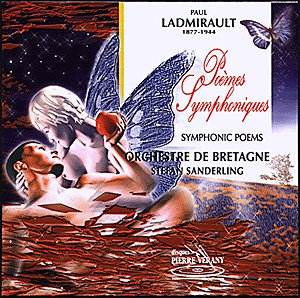 Composer: A. E. Housman (settings by various composers)
Composer: A. E. Housman (settings by various composers)
Works: A Shropshire Lad (complete), including settings by Samuel Barber, Lennox Berkeley, George Butterworth, Mervyn Horder, John Ireland, E. J. Moeran, C. W. Orr
Performers: Anthony Rolfe Johnson (tenor), Graham Johnson (piano), Alan Bates (reader)
Recording: Hyperion Dyad CDD22044, 2CD [123.39]
Label: Hyperion
A Shropshire Lad, the seminal collection of poems by A. E. Housman, has captivated composers since its publication in 1896, inspiring a rich tapestry of musical settings. This reissue from Hyperion encapsulates the enduring allure of Housman’s verses, offering listeners a comprehensive exploration of the themes of love, loss, and nostalgia that permeate the poetry. With works spanning various composers, this collection presents a unique opportunity to appreciate how different musical voices interpret Housman’s poignant text, thereby enriching our understanding of both the poems and their musical embodiments.
The performances delivered by tenor Anthony Rolfe Johnson, pianist Graham Johnson, and reader Alan Bates combine to create an intimate and reflective experience. Rolfe Johnson’s voice is marked by a plangent beauty that perfectly suits the lyrical qualities of the settings, particularly in Butterworth’s cycle, which remains the centerpiece of the collection. His interpretation of “Bredon Hill” stands out, with its seamless integration of melody and text, capturing the wistful yearning that defines Housman’s work. The ease with which he navigates the varied emotional landscapes of the songs speaks to his mastery of English song repertoire, while Graham Johnson’s piano accompaniment is characterized by its sensitivity and nuanced detail. The interplay between singer and pianist is particularly noteworthy in “On the idle hill of summer,” where Johnson’s delicate touch complements the rhapsodic quality of the melody, creating a palpable sense of pastoral tranquility.
Alan Bates’ readings of the poems are delivered with a conversational intimacy that invites the listener into the reflective world of Housman’s verse. His declamatory style eschews theatricality, opting instead for a more personal connection to the text. This approach encourages the listener to engage with the underlying melancholy of the poems, deepening their resonance when juxtaposed with the musical settings. The choice to alternate spoken word with song allows for a contemplative experience, as the listener can absorb the full scope of Housman’s work in its entirety.
The recording quality is exemplary, with Hyperion’s trademark clarity allowing the subtleties of both voice and piano to shine through. The acoustic environment feels intimate yet spacious, highlighting the interplay between the three performers without overpowering the text. This attention to detail in sound engineering enhances the emotional impact of the performance, ensuring that every inflection and nuance is captured with fidelity.
While the contributions from composers such as Ireland and Moeran are compelling, the standout remains Butterworth, whose settings exhibit an effortless lyricism that aligns seamlessly with Housman’s poetry. Rolfe Johnson’s rendition of “When the lad for longing sighs” is particularly striking, presenting a lyrical flow that underscores the poem’s emotional weight. Comparatively, the music of C. W. Orr, while interesting, does not evoke the same depth of feeling, and the inclusion of Berkeley’s songs, though well-crafted, feels somewhat tangential to the central theme of the collection.
This reissue of A Shropshire Lad serves not only as a testament to the enduring power of Housman’s poetry but also as a celebration of the rich musical interpretations it has inspired. The combination of high-caliber performers, thoughtful programmatic structure, and impeccable production values renders this collection a vital addition to the catalogue of English song. For those invested in the intersection of poetry and music, this release is an invaluable resource, revealing the profound ways in which composers have responded to Housman’s evocative words.



